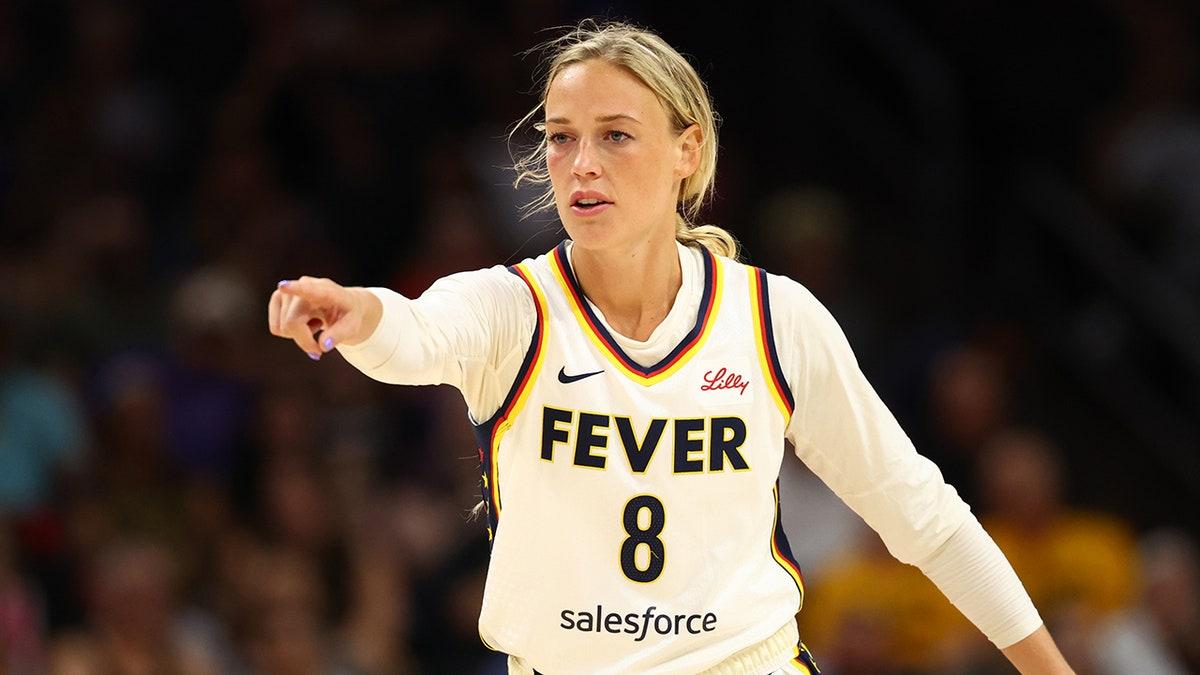The controversy surrounding the WNBA’s recent punishment of Sophie Cunningham has sparked significant debate, highlighting deep concerns about fairness and consistency in the league’s disciplinary policies. Cunningham, a fiery competitor known for her outspoken nature, was fined after publicly criticizing officiating standards, a move that many see as the league’s attempt to silence dissent rather than engage in meaningful dialogue about the quality of refereeing. Her penalty has reignited discussions about the treatment of players who voice concerns, and whether freedom of expression is respected in a professional sporting context.

What makes this situation more problematic is the perceived double standard. While Cunningham is punished for speaking out, other players who commit dangerous on-court actions often face minimal consequences, or in some cases, none at all. Incidents involving reckless fouls, unsportsmanlike conduct, and physical altercations have been met with relatively light responses compared to Cunningham’s financial penalty for simply using her voice. This imbalance suggests that the league is prioritizing control over narrative and reputation rather than addressing issues that directly affect player safety and the integrity of the game.
The optics of the punishment matter greatly. When fans see one player fined for words while others escape harsher consequences for physical misconduct, the perception of unfairness grows. For a league still in the process of expanding its popularity and solidifying its reputation, appearing inconsistent and image-driven could damage trust among its most loyal supporters. Fans and analysts alike argue that athletes should not be silenced when raising legitimate concerns, especially when those concerns touch on issues such as officiating quality, fairness, and competitive integrity.

Cunningham’s punishment also raises questions about the WNBA’s commitment to transparency. If officials and the league are confident in their standards, then criticism should be met with dialogue, accountability, and potential reform, not fines that discourage athletes from speaking up. The reality of sports is that officiating will always be subject to scrutiny, but leagues that embrace constructive criticism often emerge stronger. By contrast, suppressing voices can foster resentment and alienate players who feel their perspectives are undervalued.
The growing backlash highlights the need for reform. Many observers are calling for clearer disciplinary guidelines that treat verbal criticism and physical misconduct with proportionality and fairness. Players want to feel that their league values their safety and well-being just as much as its external image. Furthermore, fans want to see a governing body that is consistent, fair, and willing to listen.

Ultimately, the Cunningham case could serve as a pivotal moment for the WNBA. It offers the league an opportunity to reassess its priorities, reconsider how it handles criticism, and move toward a system that balances accountability with respect for players’ voices. Ignoring this controversy or doubling down on silencing dissent risks reinforcing the perception of double standards and undermining the credibility of the league.
The WNBA has worked hard to grow its presence and inspire a new generation of athletes and fans. To continue on this path, it must ensure that players are treated fairly and consistently, that their voices are respected, and that the focus remains on elevating the game rather than policing speech. Sophie Cunningham’s punishment may be seen today as a controversy, but in the long run, it could be the spark that forces the league to confront uncomfortable truths and build a stronger foundation for the future.

